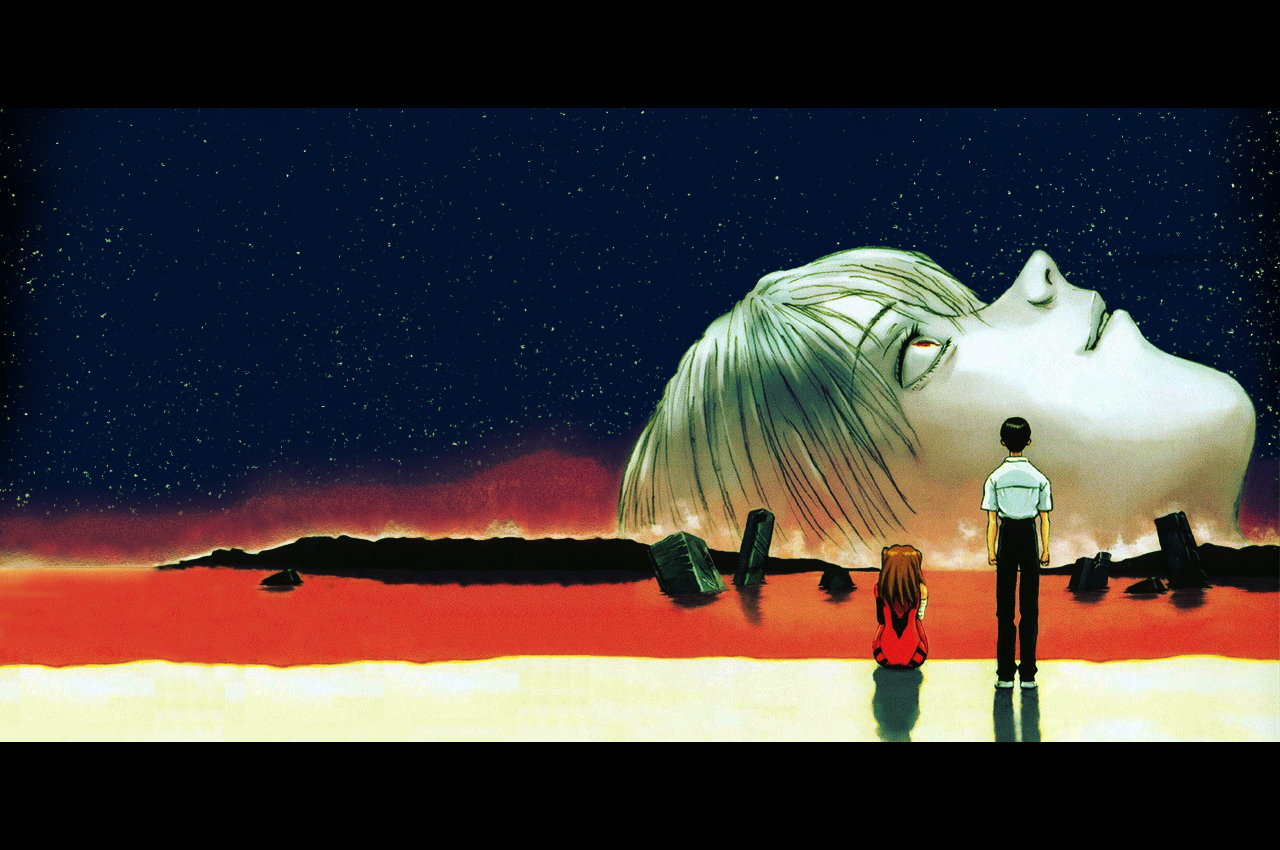
I have waited a long time to write this review. To be honest, I've been putting it off, despite the fact that End of Evangelion is probably my favorite anime ever. You see, to me Evangelion represents a very delicate time in my life, a year where I didn't really know who I was anymore. I tried lying to myself, but then I found Evangelion and began to face my reality.

End of Evangelion opens with what is likely one of the most controversial anime scenes of all time. What happens in this scene could be chalked up to an attempt at being edgy, however this is not the case at all. This scene not only represents a powerful metaphor for the idolization of anime heroines by needy fans, but is an important character moment for Shinji. This is the moment he finally goes completely insular, a last moment of regrettable decisions before deciding to stop making decisions. This is when the world begins to end.

At this point, the plot will stop making sense to the casual viewer. This would normally strike me as bad storytelling, but there is a plot there, and the events of the film work perfectly well on a primal level. Shinji stopped caring, and the world ended. Everyone died. This mood of absolute terror is amplified by the top-notch designs, namely of the eerily pleased appearance of the mass produced Evas, creepy religious iconography, and disturbingly human movements of the Eva Units, provided by Production IG, who would later collaborate with GAINAX again for FLCL.
![[theendofevangelion-6.jpg]](https://blogger.googleusercontent.com/img/b/R29vZ2xl/AVvXsEiShYKRa8k5czYblVGsEYgMRj9qlv00d_QvBe7DUNxPkSklUW1dOiLLNE7sHS1Y774_8j-GhCClHLMQJpkuu8g7NMHfUIw5W9iCxhwJAsDt4ft7ysGHJdoVrrnbPCtaGxq_WnjtehEAk3w/s1600/theendofevangelion-6.jpg)
The second half of the movie abandons the complex plot completely for a long, surreal conversation between Shinji and Rei (or maybe it was Yui) about the fate of humanity. Unlike the confusing slog that was the TV ending, these moments are incredibly involving, perhaps because there is a story to connect this conversation to. Certain things that the characters say are very enlightening, not only to the story, but to reality in general, as if the camera suddenly shifted from the movie to the theater (which, in fact, actually happens at one point).

In the final shots of the movie, two survivors remain standing by a red sea. One briefly tries to kill the other, but cannot bring himself to. The other says, "I feel terrible." However, is this ending truly tragic? Both characters were assumed to be either dead or traumatized beyond comprehension, but here they are, two fully functional human beings, accepting reality and possibly moving on. That is the message of Evangelion.
I was just browsing End Of Evangelion images and stumbled across this review and I just have to say that you summed up this masterpiece perfectly. Bye bye now :)
ReplyDeleteI don't think that "accepting reality and possibly moving on" is the final message at all. Especially since the story takes an effort to deconstruct what reality means.
ReplyDeleteI believe that is the true message: That trauma doesn't define us; among several other messages. Same as comment #1 :D
ReplyDeleteThat isn't the message at all.In fact, is what Shinji and Asuka/Rei/Misato wake up in reality? No one knows for sure. And that "confusing slog that was the TV ending" was one of the most brilliant pieces of television. Ever. Just because you can't wrap your mind around it doesn't make it a "confusing slog." It makes you a "confused slog."
ReplyDelete